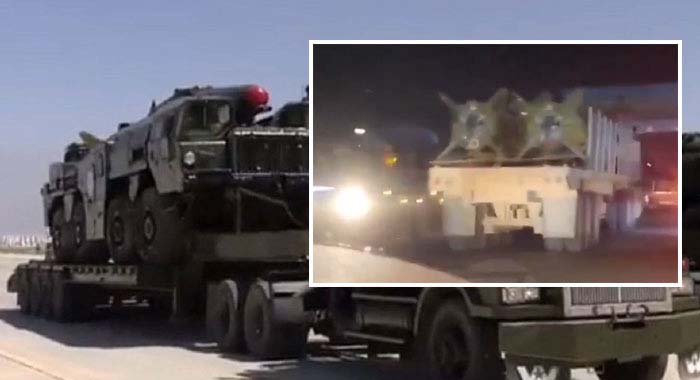Grave concern has been expressed over credible reports suggesting that the Taliban may have deployed the Soviet-era Elbrus ballistic missile system in a recent cross-border attack targeting Pakistan. Defence and intelligence monitoring sources indicate that the strikes were carried out on the night of October 12, when two missiles were launched from Afghan territory towards Pakistani soil.
Footage circulating on social media shows two projectiles being fired from undisclosed locations inside Afghanistan, fuelling speculation that the weapons used were 9K72 Elbrus (NATO designation: SS-1C Scud-B) ballistic missiles. Defence observers have also reported the movement of 8K14 and 9M21F missile systems in Taliban convoys in eastern provinces near the border region.
According to a detailed analysis published by the defence research platform Militarny, initial intelligence suggests that the Taliban may have restored and reactivated Cold War–era missile systems abandoned by the former Soviet Union. The same systems — including Elbrus and Luna-M — were publicly showcased by the Taliban during a 2022 military parade, signalling a shift towards the operational revival of legacy long-range platforms.
Security experts warn that the potential use of such ballistic systems by a non-recognised regime poses a direct threat to regional stability and international security norms. The presence and possible deployment of these weapons underscore growing concerns over the Taliban’s militarisation and their access to advanced strike capabilities once considered obsolete but still capable of significant destructive power.
Pakistan has yet to issue an official statement on the reported attack. However, defence analysts note that any use of ballistic missiles against a sovereign state would mark a dangerous escalation, challenging established international conventions and raising serious questions about the Taliban’s control over heavy weaponry.
Observers believe the development highlights an increasingly volatile security environment along the Pakistan-Afghanistan frontier, where cross-border aggression and the re-emergence of militant infrastructure have already strained bilateral relations.
Regional diplomatic sources indicate that Islamabad is closely monitoring the situation, with calls growing for urgent international scrutiny of Afghanistan’s weapon stockpiles and the potential proliferation of ballistic systems under Taliban control.





